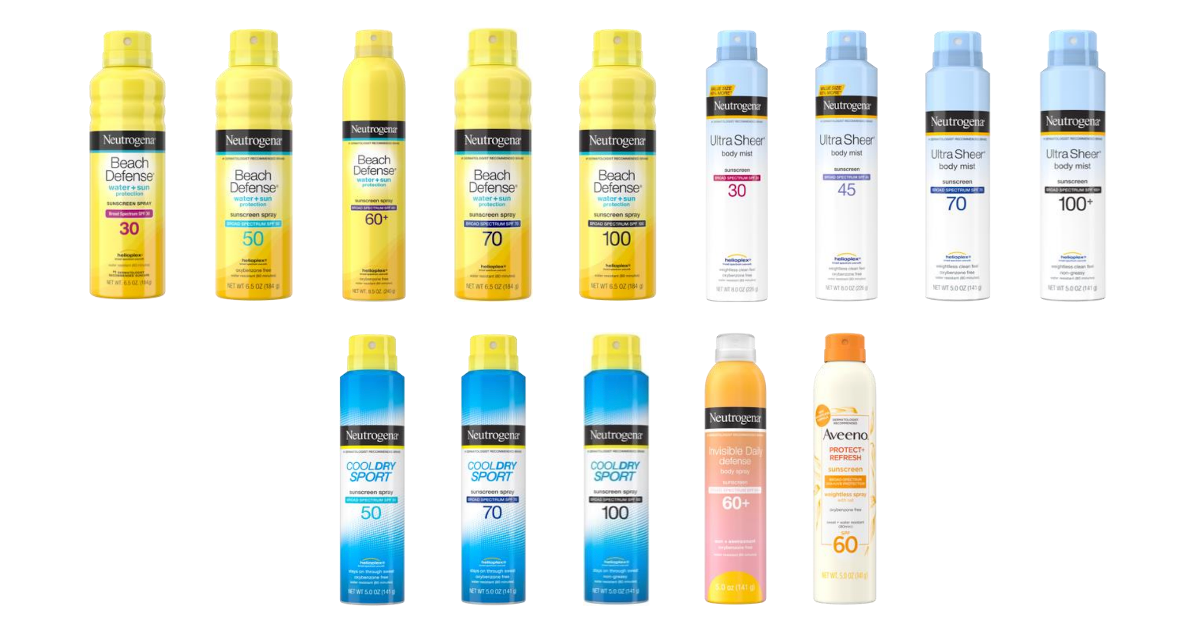Johnson & Johnson announced on July 14, 2021 that it had issued a voluntary recall for five of its aerosol sunscreens, after samples were found to include low concentrations of benzene, a cancer-causing chemical.
Johnson & Johnson announced on July 14, 2021 that it had issued a voluntary recall for five of its aerosol sunscreens, after samples were found to include low concentrations of benzene, a cancer-causing chemical.
In the announcement, the company specified that five Neutrogena and Aveeno suncreens were affected:
- NEUTROGENA® Beach Defense® aerosol sunscreen,
- NEUTROGENA® Cool Dry Sport aerosol sunscreen,
- NEUTROGENA® Invisible Daily™ defense aerosol sunscreen,
- NEUTROGENA® Ultra Sheer® aerosol sunscreen, and
- AVEENO® Protect + Refresh aerosol sunscreen.
They wrote:
Johnson & Johnson Consumer Inc. (JJCI) is voluntarily recalling all lots of five NEUTROGENA® and AVEENO® aerosol sunscreen product lines to the consumer level. Internal testing identified low levels of benzene in some samples of the products. Consumers should stop using the affected products...
As outlined by the U.S. Food and Drug Administration (FDA), benzene is a relatively prevalent chemical that is often released into the air through emissions from automobiles, as well as coal and oil burning, and is also used in some forms of manufacturing.
Although we typically encounter it at levels that are too low to pose a health risk, benzene can cause cancer at much higher concentrations. According to Johnson & Johnson, benzene is not an ingredient in any of its sunscreens, but for reasons that they are still investigating, samples of the five aerosol sunscreens in question were found to contain low levels of the chemical.
The company insisted that "daily exposure to benzene in these aerosol sunscreen products at the levels detected in our testing would not be expected to cause adverse health consequences," but added: "Out of an abundance of caution, we are recalling all lots of these specific aerosol sunscreen products."
Consumers are advised to stop using and discard the affected sunscreens. Details on the products and lots recalled can be found here, and consumers can learn how to obtain a refund here.
